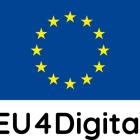Introducing a new way of interoperable, secure and trusted electronic data exchange via eDelivery solution
News details
What does information exchange without a digital delivery solution look like?
Currently, when a company wants to send an invoice to an overseas partner, the invoice is issued in paper form due to the lack of standardisation. It means that the document is physically printed, signed and sent. In some cases, scanned versions of documents accompany the physical invoice.
In practice, this type of data and document exchange, with no common structure and secure digital solution, has a lot of drawbacks and complications, such as:
- Additional financial and human resource burden: entities participating in the data exchange process have to invest time and finances, as well as devote additional human capital in order to develop a point-to-point connection between their information systems.
- Chain of delay: data exchange through paper causes numerous delays – delays in receiving the physical documents, which in turns results in late payments, and deferred delivery of goods and services and potential loss of revenues.
- Endangers the data and the businesses: sharing data through email with no secure digital solutions puts in danger not only the data that has been exchanged, but also the entire businesses.
Any alternatives?
The problematic nature of paper-based data exchange has been already identified by the EU. This in turn led the European Commission to develop the CEF eDelivery building block. The goal of this development is to facilitate the delivery of digital public services by helping private and public entities to exchange electronic data across borders and sectors in an interoperable, secure, reliable and trusted way. Through the use of eDelivery, every participant becomes a node in the network using standard transport protocols and security policies.
More than 35 countries worldwide have already deployed more than 600 eDelivery Acces Points. Some countries have even strongly embedded eDelivery usage in different sectors on a national level, e.g. Denmark and Norway have mandated by law the requirement for sending electronic invoices to public institutions in the public procurement process.
Moreover, the significant increase in the volume of exchanged documents by private and public entities also indicates the benefits of the eDelivery solution. According to CEF data, over the past five years, the number of documents exchanged via eDelivery has increased from around 5 million documents in Q3 2015 to more than 405 million documents in Q2 2020. The amount of exchanged documents is expected to grow even further.
eDelivery pilot – an opportunity for the EaP
The EU4Digital Facility is also analysing the complications of cross-border electronic data exchange. To help to overcome the existing drawbacks, eDelivery piloting of invoice data exchange is planned between business partners from Ukraine and Poland.
The pilot will see participating companies exchange standardised invoice data via the eDelivery channel, in parallel with issuing the invoice in the regular manner. The required software will be set up in a leased cloud platform. The pilot is planned to take place from October to November 2020.
To ensure the successful pilot implementation, the following parties were involved:
- Companies from Ukraine – Kernel and Premier Food – and their counterparties in Poland.
- eDelivery Access Point owners – Edison S.A. in Poland and the newly-established Access Point in Ukraine managed by State Enterprise “DIIA”.
- Ministry of Digital Transformation of Ukraine, which facilitates and coordinates the pilot implementation activities on a National level.
The Peppol test eDelivery network will be used for establishing a set of common business processes and technical standards for data exchange in the eDelivery pilot. Specifically, the Peppol BIS Billing 3.0 standard for electronic invoices will be applied. The standard is also compliant with European eInvoicing standard, therefore if an invoice complies with BIS requirements, it is also considered to be compliant with EU Directive 2014/55 on electronic invoices.
It is important to note, that once the parties join the Peppol eDelivery network, this enables them to exchange electronic data with network members in the EU and beyond.
The eDelivery pilot initiative managed by the EU4Digital Facility have several goals:
- To introduce EU best practices of cross-border electronic data exchange to the Eastern partner countries;
- To test whether the participating business companies are able to send and receive the exchanged invoice data via eDelivery;
- To set and test the initial base for invoice data exchange via the eDelivery channel and later provide further recommendations in regards to the required legal, organisational and technical changes needed for adoption of the piloted eDelivery solution at national level.
What’s next?
The EU4Digital Facility expert team has been working actively working to complete the preparatory actions required for successful pilot launch. The eDelivery pilot between Ukraine and Poland is being launched on 9 October 2020.
Furthermore, an extension to the pilot to an inter-EaP scenario is also foreseen.
It is important to highlight that the eDelivery pilot does not only provide technical testing of invoice data exchange via digital channels. It influences a much wider ecosystem, including standards, processes, legislation and even organisational set-up. Throughout the process, the EU4Digital team will support and identify what is needed to improve the process for full-scale eDelivery solution implementation in the Eastern partner countries. Accordingly, EU4Digital will prepare recommendations regarding the required legal, organisational and technical adjustments, which will be available for all Eastern partner countries.
See also: eDelivery pilot goes live

Log in with your EU Login account to post or comment on the platform.